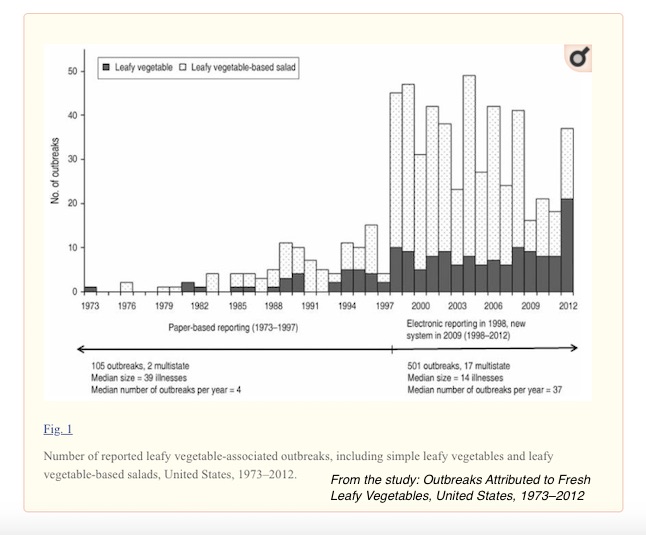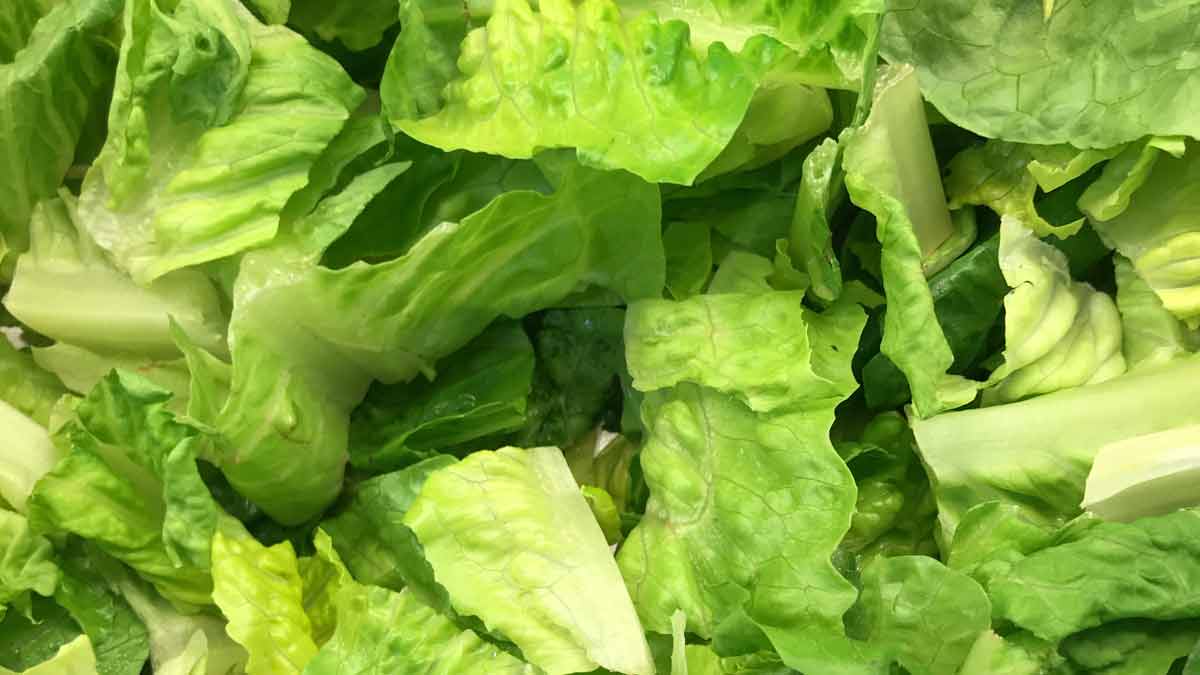Whether it’s spinach or romaine, a chopped, bagged salad prepared at home, or as a meal enjoyed at a restaurant, Americans are eating more leafy greens than ever. But they’re also hearing more about lettuce E. coli outbreaks and wondering, are they on the rise?
They are, say the food safety experts. And the outbreaks that are announced to the public are only a fraction of those that occur.
Studies show that when it comes to leafy greens, food poisoning outbreaks in general and E. coli outbreaks, in particular, have been increasing in recent years. For example, the authors of Outbreaks attributed to fresh leafy vegetables, United States, 1973–2012 found that the pre-electronic reporting period of 1973-1997 averaged about four outbreaks a year. But the period from 1998-2012 averaged about 37 outbreaks per year.
The researchers also found that the number of E. coli outbreaks linked to leafy greens has increased in recent years. And, that from 1973 – 2012, E. coli was the leading cause of simple leafy vegetable outbreaks with a confirmed source, responsible for nearly two-thirds of multistate outbreaks, over 45 percent of hospitalizations, and nearly half of the deaths.
Part of the reason for this increase was the improvement in detection of outbreaks. Another part was an increase in per capita consumption of leafy greens from 16 pounds in 1973 to 17 pounds in 2011. And this increased consumption included a shift away from head lettuce and towards romaine and leaf lettuce which may be more susceptible to contamination in the field, according to the study. The advent of the bagged salad in the early 1980s was also a factor. Each step in the production of bagged salad is an additional opportunity for contamination.
The Interagency Food Safety Analytics Collaboration, a partnership of the Centers for Disease Control and Prevention (CDC), the U.S. Food and Drug Administration (FDA) and the U.S. Department of Agriculture (USDA), released an analysis earlier this month called Foodborne illness source attribution estimates for 2016 for Salmonella, Escherichia coli O157, Listeria monocytogenes, and Campylobacter using multi-year outbreak surveillance data, United States. That analysis found that of all E. coli O157: H7 outbreaks that occurred between 1998 and 2016, vegetable row crops (including leafy greens) accounted for 43.2 percent of them.
How do Leafy Greens Become Contaminated With E. coli?
Leafy greens can become contaminated in the field by E. coli bacteria in irrigation water, manure used as fertilizer, wild animals that defecate in farm fields and farm workers who don’t wash their hands properly after going to the bathroom. Contamination can also happen during processing, while the lettuce is being washed or cut for example. And, if at any point in the journey from farm to fork, the lettuce is not properly refrigerated, bacteria can grow.
It’s also important to note that most of the outbreaks are linked to leafy greens prepared at a restaurant or catering facility. This emphasizes the importance of food safety training at restaurants and indicates that consumers who practice good food safety while preparing leafy greens at home can reduce their risk of illness.
Romaine E. coli Outbreak
The most recent outbreak, which began in March 2018, was linked to romaine lettuce grown in Yuma, Arizona. It struck 36 states sickening 210 people, almost half of whom were hospitalized. Twenty-seven of them developed hemolytic uremic syndrome (HUS) a life-threatening form of kidney failure that affects between 5 percent to 10 percent of people with E. coli infections. Five people died.
Many of the people sickened in this outbreak reported eating romaine lettuce at a restaurant before they became ill. Some of them got sick weeks after health officials warned consumers not to eat and grocery stores and restaurants not to sell romaine lettuce grown in Yuma.

